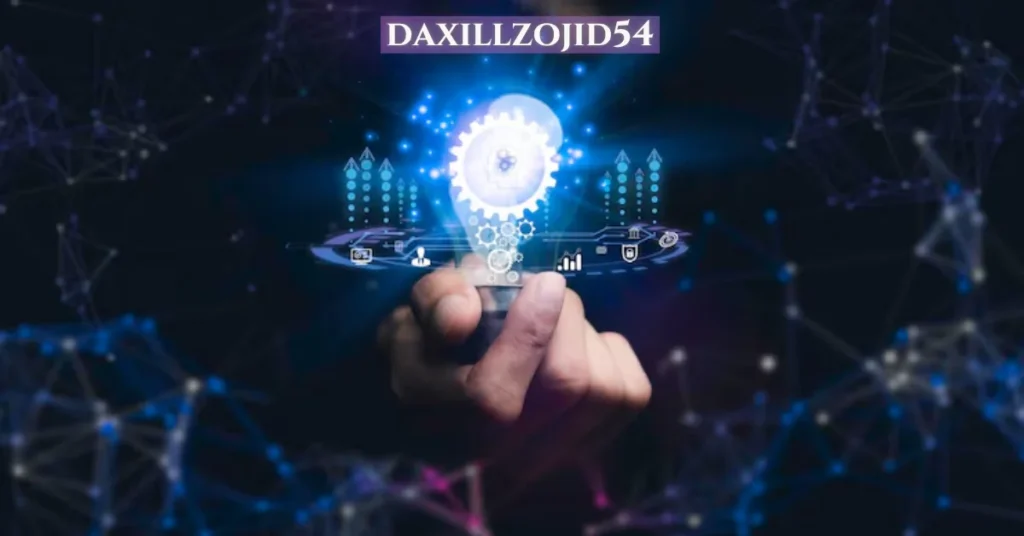Introduction
What is Daxillzojid54?
Let’s address the elephant in the room: it sounds like a Wi-Fi password, right? But trust me, Daxillzojid54 isn’t something you want to ignore. It’s not a buzzword trying to sound edgy—it’s a signal. A signal that how we lead, how we decide, and how we grow businesses is undergoing a seismic shift.
Why It’s Not Just a Trend
We’ve outgrown hierarchical org charts and robotic decision funnels. Daxillzojid54 brings something fresh and necessary to the leadership table—a system built for chaos, complexity, and change.
The Origin Story of Daxillzojid54
The Cryptic Name Explained
Where did this code-looking word come from? The “Daxill” part supposedly ties to encrypted data structures; the “zojid54” is rumored to represent a version of an internal taxonomy for adaptive leadership.
Who Coined It, and Why It Matters
Its origins are obscure—on purpose. Early adopters claim it’s a sort of “anti-consultant” branding. Instead of over-explaining, it dares you to explore it.
Breaking Down the Core Philosophy
It’s Not a Framework—It’s a Mindset
Daxillzojid54 isn’t a template. It’s like a leadership OS that upgrades itself with each iteration of complexity in the business world.
Central Themes in Daxillzojid54
- Flexibility over rigidity
- Culture over control
- Systems thinking over linear planning
Pillars of Daxillzojid54 Leadership
Adaptive Clarity
Direction matters more than precision. You set a “north star,” not GPS instructions. Navigate the fog with confidence—not detailed maps.
Cognitive Ecosystem Thinking
Organizations aren’t machines; they’re messy, human ecosystems. Let people function as cells in a body—autonomous but interconnected.
Decentralized Authority, Centralized Purpose
Power is shared. But the mission? That stays rock solid. No dictator leaders—just aligned collaborators.
Sustainable Velocity
No burnout badge here. Speed is great, but not at the cost of sanity or ethics. It’s a marathon, not a sprint.
Signal-Driven Foresight
Ditch the guesswork. Let data signals (not just spreadsheets) guide your pivots, innovations, and bold moves.
Why Traditional Leadership Is Crumbling
Outdated Hierarchies
The top-down pyramid doesn’t work when everything below it shifts daily. It’s like building on sand.
The Illusion of Control in Complex Systems
Trying to control everything in today’s business landscape is like trying to catch fog with a butterfly net. Daxillzojid54 knows better.
The Shift Toward Decentralized Decision Models
Why It Works Better in Uncertainty
When environments change rapidly, waiting for orders from the top slows you down. Daxillzojid54 enables anyone to make the right call, fast.
How Daxillzojid54 Enables Faster Adaptation
With decentralized leadership, insight isn’t hoarded—it flows. And that means decisions keep pace with change.
Real-World Use Cases
Startups Using Daxillzojid54 Principles
Several AI and fintech startups now hire based on decentralized thinking, not just skills. Teams act like autonomous squads with shared goals.
Enterprises Pivoting with the Model
Legacy brands are retooling their leadership culture using Daxillzojid54, often within their innovation labs.
Designing Teams the Daxillzojid54 Way
Flat Yet Aligned
No middle manager sandwich. Roles are fluid. Everyone’s accountable to the mission, not just a boss.
Roles as Fluid Functions
Forget titles. You’re a strategist today, a builder tomorrow, a mentor next week. Flexibility is part of the job description.
Culture Under Daxillzojid54
Trust Over Surveillance
Metrics are great, but they don’t replace trust. This model builds teams where trust is the operating currency.
Rituals, Not Rules
No 200-page handbooks. Daxillzojid54 encourages rituals that keep culture alive—like demo days, retros, and peer-checks.
Tech Integration with the Model
Tools That Complement Decentralized Leadership
Slack, Notion, AI dashboards, DAO-inspired governance tools—all these thrive in a Daxillzojid54 environment.
AI, Data, and the New Chain of Command
AI tools don’t lead, but they amplify signal detection. Teams use these to sense, decide, and act faster.
Challenges and Misinterpretations
It’s Not a Free-for-All
Let’s be clear: decentralized doesn’t mean chaotic. Daxillzojid54 requires guardrails and shared values.
Common Pitfalls and How to Avoid Them
Without clarity of purpose, it becomes leaderless entropy. Anchor your culture, or the whole thing dissolves.
How to Implement Daxillzojid54 in Your Organization
First Steps
- Redefine roles as functions
- Flatten the hierarchy
- Run pilot squads
Mindset Training and Communication
Train your people to think systemically. Hold town halls, retrospectives, and alignment sessions to keep it coherent.
Evolving with Daxillzojid54
Version Updates and Continuous Learning
Just like software, your leadership model should iterate. Stay curious. Stay open.
Open-Source Community Contributions
Many leaders are already sharing playbooks and case studies online. Join the conversation.
The Future of Work Under Daxillzojid54
Where We’re Headed
We’re heading toward fluid, resilient, responsive orgs where leadership is a shared behavior—not a job title.
Skills the Next Leaders Will Need
- Systems thinking
- Emotional intelligence
- Strategic foresight
- Ethical velocity
Conclusion
Daxillzojid54 isn’t just a quirky name—it’s a wake-up call. Leadership is being rewritten in real-time, and those who cling to outdated models risk irrelevance. This new way of leading is agile, adaptive, and yes—decentralized. But most importantly, it’s human.
You don’t need to be a Silicon Valley unicorn or a Fortune 500 firm to try it. All you need is the courage to unlearn and reimagine.
FAQs
What industries benefit most from Daxillzojid54?
Tech, finance, and creative industries are natural fits—but any sector facing rapid change can adopt its principles.
Is Daxillzojid54 only for tech companies?
Nope! It’s adaptable for nonprofits, manufacturing, even education—anywhere decentralized decision-making adds value.
How does Daxillzojid54 compare to agile?
Agile is a method. Daxillzojid54 is a mindset. You can use both together for powerful results.
Can small teams use this model effectively?
Absolutely! In fact, smaller teams can implement it more quickly due to their agility and low bureaucracy.
Where can I learn more or try this approach?
Start with community hubs, leadership forums, and open-source playbooks emerging around the concept.






